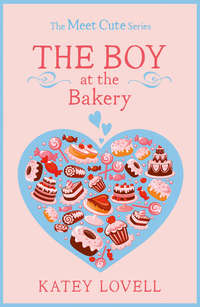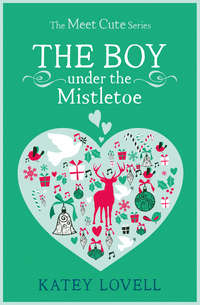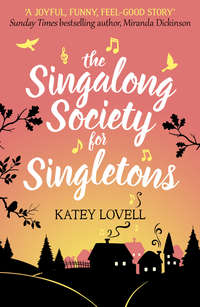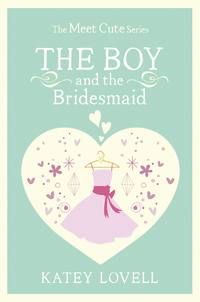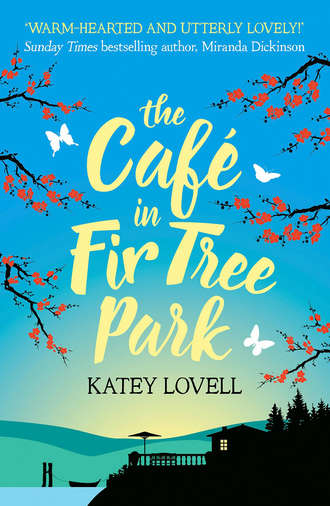
Полная версия
The Café in Fir Tree Park
Even in my day things were different, and it’s not like I’m from the dark ages. Half my classmates went straight into work from school – poorly paid jobs as receptionists, barmaids, checkout girls – ordinary jobs for the ordinary people we were. There was no shame in that back then, it was the norm. How can the world have changed so much in such a short time?
I’d worked as a waitress before having Josh, serving stone-baked pizzas and rich cannellonis in a little Italian restaurant on the high street, a family-run eatery. Every available surface had been bedecked in the traditional national colours of red, white and green. It hadn’t paid that well but had provided a bit of pocket money, enough to get by. Even now I’m hardly Deborah Meaden; I just got lucky, buying the café for a song and slowly but surely building up the business. The Lake House Café’s doing well at the moment, with café culture on the rise.
“Who said anything about being stuck here? If you work over the summer, you’ll earn a bit of pocket money and maybe have enough to travel. You’ve said you wanted to see the world. Why not do it now while you have the chance? I always fancied getting one of those train tickets that lets you go all over Europe, packing a backpack and seeing where I ended up. Imagine what an experience that’d be! You could go to Rome…” I say dreamily. In my mind I’m drifting off on a sleeper train heading towards the Eternal City, rather than wondering if I’ve got enough plain flour in the cupboard to last the rest of the week. As much as I love my job, Rome sounds infinitely more appealing.
Kelly, however, looks doubtful. “I don’t know. I’d have to come back sooner or later, and without a degree I’d struggle to get a job.”
“For as long as I own this café, there’ll be a job here for you. I know it’s not much, but it’s something.” I cup my daughter’s hand, giving it a gentle squeeze of reassurance. “Just have a think about things, that’s all I’m asking. Why don’t you head off home? Fern will be here shortly, and I can manage till then.” I nod towards the café door and the sprawling green park beyond. “Go and hit those books.”
Kelly reaches for her black leather satchel and slings it across her body. “Thanks, Mum. And I’ll think about it, the travelling.”
I’m sure she’s only saying it to placate me, but I humour her back, leaning down and kissing the baby-soft skin of her cheek. They’re growing up fast, her and Josh. If only I could slow it down a touch before they’re gone for good, lost to significant others and the daily grind.
“Do. There’s more to life than exams. I may not have got here by the most direct route, but I’m happier now than I’ve ever been before.” I can’t help but smile with a quiet satisfaction. “It took me the best part of forty years to achieve what I wanted, so don’t you go beating yourself up for not having your life mapped out at your age. You’ll get there soon enough. I’ve got everything I want now. It just took a bit longer than I thought it would, that’s all.”
Kelly makes for the door. “Everything you want except a man,” she says cheekily, quickly closing the panelled door behind her whilst I stand agog, wishing I was a bit sharper.
She’s right though. It’s the sad truth that I do wish I had a bit of male company once in a while. I don’t need a man in my life, but it’d be nice to have someone special to share the highs and lows with. There’s been no one serious since Clint, nothing more than a few paltry dates that didn’t lead to anything fulfilling. I’m only forty: surely I’ve not used up my share of romance already?
I sink into one of the wooden chairs, the plump gingham cushion softening my landing, as I reminisce.
Clint Thornhill had been my childhood sweetheart, a wild bad boy with convincing patter. As a teen, I hadn’t noticed his (many) obvious flaws, instead blindly worshipping the ground his bovver boots walked on. I’d fallen hard and deep, smitten by his white-blonde hair and strong features. He’d reminded me of my first major celebrity crush, Matt Goss from Bros. The similarity had set my heart aflutter.
I’d had to pinch myself to believe Clint would be interested in me, but for some reason he’d kept hanging around, turning up at places he knew I’d be. When he finally asked me to the pictures I’d accepted in a flash. We shouldn’t have wasted our money because we hadn’t watched the film: instead we’d snogged for two hours solid in the back row of the local fleapit. My lips had felt like they were burning, a blissful pain searing through my fifteen-year-old self that was full of both danger and excitement.
Two and a half years later we were married, a small register office do on my eighteenth birthday. Seven months after that came the two blue lines on the white plastic stick that had revealed I was expecting Josh, and I’d been so, so happy. Other people my age seemed so unsure, but I’d got it all – a husband, a council flat, a baby on the way. I’d foolishly thought I’d got it sussed.
But it hadn’t taken long for me to realise my mistake in marrying too young, and although I’d never regret Josh and Kelly, I do regret Clint. Mostly I regret the shame he brought on my family, the absolute heartbreak both his mum and mine had suffered when he’d been sent to prison ten years ago. Armed robbery, like one of those bank hold-ups in a cartoon. He’d even been wearing a black balaclava in an attempt to hide his face, just to live up to the stereotype. It was almost laughable. All he needed was a swag bag and a black-and-white-striped jumper to complete the Burglar Bill look.
The balaclava hadn’t worked, anyway. The bank teller he’d threatened had recognised him despite his disguise. In court she’d said that she knew it was Clint who’d pointed that gun at her because she’d recognise his eyes anywhere. Funny how the piercing blue eyes I’d lost myself in so many times were the very thing that eventually tore us apart.
After that things changed. Every time I walked into a shop people would stare, gossiping behind their hands about what an idiot I must be to have ended up saddled with two kids and a criminal for a husband; and his poor mum, you’d think she’d given birth to the devil himself from the way people spoke to her. People judge you on how your kids turn out, and Vivienne’s parenting skills were well and truly under scrutiny after Clint’s escapades. There’s no hiding in a small town like this.
Soon after Clint was locked up, I filed for divorce. Unreasonable behaviour, although I could have easily named adultery as the reason for the breakdown of our marriage. Clint might have made me feel like one in a million at the beginning, but a string of affairs throughout our married life left me with zero confidence. He came back grovelling time and time again, plying me with platitudes about how it was me he loved and how he only ever strayed when drunk, but I’d become a laughing stock, one of ‘those women’. His prison sentence was a chance for me to break free and reclaim my fragile heart, although I’m still recovering from the damage our toxic relationship caused.
If I’m being completely honest, that’s why I threw myself into The Lake House Café with every ounce of my heart and soul. The café had been a welcome distraction from the romance that was sadly missing in my life. It gave me a purpose, along with a ready-made excuse for turning down the occasional offers of dates I did get – always claiming to be too busy for love when really I hadn’t found anyone I was willing to take a chance on. Once bitten, twice shy, as they say.
But today’s a Saturday, and Saturdays mean one thing – football coaching in the park. And football coaching means the handsome Italian with the floppy jet-black hair; tall, lean and athletic with rich olive skin and strong, taut thighs. Yes, Saturdays are especially pleasurable. He’s exceptionally easy on the eye.
It hardly matters that I’ve barely said a word to him in all the months he’s been running the kiddies’ football course. I’ve seen him, and that’s enough. My heart flutters more than I care to admit at the thought that he might pop into the café for an Americano and a slice of gingerbread at the end of the session. He doesn’t call in every Saturday, but when he does it brings a spring to my step and a smile to my face. Sadly, it’s the highlight of my week, so I hope today will be one of the days he rewards his hard work with some home baking. Please, please, please…
Pushing back the chair, I catch my reflection in the window. I plump up my dark brown curls to give them more volume and smack my lips forcefully together in the hope it’ll enhance their colour. Ensuring I look my best, just in case.
The jangle of the bells over the door catches my attention and my heart pounds for all the wrong reasons as I see my assistant Fern. Her face is blotchy, her eyes narrow and red. She sobs loudly and I dash towards her, placing my arm around her shoulder.
“Fern! Whatever’s the matter, sweetheart?”
The young woman pulls away, dragging the backs of her index fingers underneath her eyes in a bid to wipe away the tears. It works, but she smears her mascara in the process, leaving prominent dark streaks stretching to the edges of her face. She looks like a bedraggled version of Elizabeth Taylor in Cleopatra.
“Oh, Maggie, it’s Luke,” Fern says, referring to her younger brother. He’s a friendly, handsome boy; energetic and confident, the polar opposite of super-shy Fern. He’s been in the same class as Kelly since infant school. They dated briefly, and I’d been surprised and quietly disappointed when they’d called time on their relationship. He’d been good for her: far better than Mischa, the moody goth girl she’d dated last year. Mischa had a notebook full of depressing song lyrics from bands like Depeche Mode and The Cure, and the amount of kohl she used on her eyelids would have given Robert Smith a run for his money. It made her look like a raccoon. I’d never understood why Kelly was with her. They had nothing in common. Not once did Mischa’s purple-coated lips crack a smile, whereas I can’t help but smile at the thought of Luke, all youthful effervescence and enthusiasm. He’s a cheerful boy, uplifting and full of zest. “Last night he was screaming in pain and saying he couldn’t see. He’s been complaining of migraines for weeks, but this was the worst yet. Dad rushed him straight to the hospital and they ran all these tests, dozens of them.”
Fern whimpers, helpless, then swallows. When she finally speaks her words hit me like a sledgehammer.
“They found out what it is that’s making him feel so awful. It’s not a migraine, Maggie. It’s a brain tumour.”
Fern
If Maggie looks stunned by my revelation, she can’t feel as shocked as I do. It’s still sinking in that this is actually happening to my brother.
It had been one hell of a night, with all of us sat on uncomfortable plastic seats in a strip-lit hospital corridor while we waited for any scrap of information we could garner from the white-coated medics that hurried past us. Mum had started wailing at one point, a deep and hollow baying cry that echoed horrifically around the clinical grey hallway while I’d stared at a poster about diabetes testing for three hours solid because if I focussed on that I didn’t have to think about all the awful tests Luke was so bravely enduring in another room. It had been, without a doubt, the worst night of my life.
“They’re going to operate on him as soon as they can, but he’s too run down right now. They’re not sure he’s strong enough to survive a ten-hour operation, so they’re treating the infection first.” I laugh, but it sounds empty and joyless. “It’s funny, isn’t it, that he’s got a bundle of cells attacking his brain and trying to kill him but they can’t try and remove it because he’s got a runny nose and a tickly cough.”
“The specialists at that hospital are nothing short of amazing. Honestly, they’re some of the best in the world. They know what they’re doing.” Maggie’s calm reassurance is exactly what I need. She’s the voice of reason. “So when are they hoping to operate?”
I shrug. “It’s hard to know. As soon as he’s well enough for the anaesthetic to not be a danger, I think. Days rather than weeks, from what they were saying.”
Repeating this information to Maggie keeps me centred. It’s almost as though when I’m relaying the cold, hard facts of the story it isn’t real, as though my baby brother isn’t lying on a hospital bed with tubes sticking out of his body and drips pumping him full of medication. I can pretend everything’s fine here, away from the stark, cold corridors of the hospital. I’m glad to be at the café and especially glad to be away from my parents, so I don’t have to watch them crumble for another minute. I’d never seen my dad cry before, but last night he must have cried every tear he’d stored up inside.
“It’s not going to affect my work though, I promise. The customers don’t need to know anything’s changed. I’ll still be here on time every day and I won’t be a misery. I won’t let you down.”
Maggie places her hand on my shoulder and squeezes. “You wouldn’t be letting me down by putting your family first, Fern. If you need to be at the hospital, you go. This should be the last place on your mind with Luke so poorly. Pearl can always do a few shifts if we need an extra pair of hands, so cover’s not an issue. I think she’s lonely, being on her own. She’d be glad to help out.”
“I’d rather be here,” I admit. “Although it’s good to know that Pearl’s available. I’d hate to leave you in the lurch if I need to dash off for whatever reason.”
I resist the urge to check my phone for the millionth time, just in case. I’d turned the ringer up to the highest volume and made my mum promise to call me if there was any news, no matter how small.
“Pearl’s more than happy to come whenever. That’s the thing about having family close by, they’re always on hand in an emergency.”
Pearl’s related to Maggie by marriage – she’s Maggie’s ex-husband’s aunt – and is a warm-hearted woman with a friendly smile. She’s usually being dragged around the park by her dachshund puppy, and has admitted that she sees the shifts she helps out with at The Lake House Café as some much-needed respite from her livewire canine companion.
“Hopefully there won’t be any emergencies,” I say grimly. “At the hospital we’re sitting around waiting for news and the time goes so slowly. I kept looking at my watch and the hands were moving that slowly I thought it had stopped. At least here I can find things to keep me busy, and it’ll do me good to see happy faces rather than wallow in self-pity all day long.”
“If you’re absolutely sure, then I’m always glad to have you. You know I couldn’t run this place without your input. But any time you need to dash off, you go. You don’t even need to tell me, just whip off your apron and get out of that door. Family’s important, Fern. I’m an only child, but I know that the bond between siblings is strong. Even though Kelly and Josh are tearing each other to shreds half the time, they’d be devastated if anything happened to the other.”
My heart sinks, Maggie’s words reminding me of my promise. I’ve got a phone call to make.
“Can I just have five minutes before I start my shift? I told Luke I’d ring someone to let them know what’s happening…”
“You take your time,” Maggie says soothingly, before switching on the radio. It’s playing a rock-and-roll song, the kind that’d normally have me tapping my feet along to the beat. Today I don’t feel like dancing. I don’t feel like much at all.
“I’ll go and clear that table,” she adds, humming quietly as she starts stacking the plates left by some of the morning’s early-bird customers.
Retrieving my phone from my pocket, relieved not to have any missed calls or messages, I scroll through the list of names. Café. Dad. Dentist. Doctor. They all flash before me before I see the name I’m searching for. I press the call icon, dread eating me up from the inside. I swallow as the phone rings once, twice, three times, and then a familiar voice answers with a sharp, and slightly irritated, hello.
“Kelly? It’s me, Fern. Luke asked me to call you…”
Lacey
There’s a nagging burning sensation nipping at my waist, the familiar gripe of a stitch building in my muscle. I’ve tried pinching it between my fingers and blowing out, something my old PE teacher used to insist was an instacure, but it’s not helping. I tried massaging it with my fingertips too, but that didn’t solve the problem either. There’s nothing for it but to slow down to a walk. The aches and pains are obviously my body’s way of telling me it’s had enough for today.
I’ve been running for a month now, which is approximately three weeks longer than I expected to stick at it. I made the rookie mistake of telling anyone who’d listen that I was doing a charity run, and because I have kind and generous (and borderline sadistic) friends and family they’d all been thrusting fivers at me and congratulating me on doing something so impressive. Admittedly, there were a few people who laughed in my face – namely my boss, who told me he’d offer sponsorship of a hundred pounds on behalf of Fine Time Events so long as I ran the whole half-marathon, obviously insinuating that he didn’t think I’d be capable. Well, I’ll bloody show him. There’s another nine weeks until the half-marathon. That’s plenty of time to up the mileage and my fitness, so long as I can find a way to get rid of this stitch.
“Lacey!” The cheery voice lifts my spirits and brings a smile to my face. The familiar tone wraps me up, warming and reassuring. “Don’t you go overdoing it, now.”
“Don’t worry, Uncle Carrick,” I say with a grin. “I know my limits. I managed forty minutes’ running today before I had to stop though, so I must be getting fitter.”
I’d been delighted with the improvement. My first ‘running’ session had been almost entirely walking, and whilst I still jog with a lolloping, ungainly gait, at least I’m picking up speed and covering more ground.
My uncle beams back, his wonky grin and twinkly eyes as sunny as the weather. “She’d be so proud of you for getting out there and doing something proactive. She was all about fighting for change, was Marilyn.”
“I think of her all the time,” I confess. “She inspires me to keep going when my legs are telling me to give up.”
I’d loved my aunt so much. Now, when my feet were aching and my thighs burning with pain, I close my eyes and imagine her face. Somehow it makes everything seem just that bit more manageable.
“It’s funny how you and her are so different to Dad,” I muse. “He’s always been so serious and strait-laced. It’s hard to believe you all have the same parents.”
Uncle Carrick snorts. “Well, Terrence always had ideas above his station. He was never going to be the type to settle for staying around these parts. Me and Marilyn, we were home birds, but your dad was forever talking about getting away. It was no surprise when he joined the army. Your Grandma Braithwaite told anyone who’d listen about how wonderful he was. He was her favourite. Youngest child by a country mile, see. Spoilt rotten.”
“I’m the youngest too, but I’m not spoilt.”
I know I sound defensive, but my parents have always been more lenient when it comes to my sister, Dina, even though she’s wilder than I am. She was the one that school would be making calls home about because she’d pierced her ears with a needle (and that one time she pierced someone else’s ears with a needle – it looked like someone had committed murder in their dorm, there was that much blood), or dyed her hair turquoise. The boarding school Dad had chosen for us was strict, and the headmistress a stickler for the rules. I lived for the weekends when I could escape the prison-like confines and stay with Uncle Carrick. It’s probably because of those weekends together that we’re so close now.
He’d never had children of his own, which was a shame as he was a natural with kids. He’d listened to me and Dina, valuing our opinions and not just humouring them like Dad did when he made his weekly phone calls from wherever he was stationed at that time. Uncle Carrick had encouraged thought and debate and offered a safe place for us to form our own opinions. Those weekends had been my highlight, when Auntie Marilyn and Uncle Lenny would pop over too with a hearty vegetable pie and we’d stay up late playing board games and laughing at Carry On films, even though I didn’t understand half the bawdy jokes. Those joy-filled Saturdays and Sundays had almost made boarding school worth it, and were far more fun than the holidays where we’d get shipped back ‘home’ to wherever Mum and Dad were at the time.
“Your dad wouldn’t know how to spoil anyone,” Uncle Carrick replies pointedly, pulling out a packet of mints and offering me one, before thinking better of it, taking one for himself then folding the half-empty packet into my hand. “He only ever looks out for number one.”
“And Mum,” I say defensively, although I don’t know why I’m standing up for Dad. “He looks out for her too.”
“He does,” Uncle Carrick concedes with a nod. “I just wish he was able to show you and Dina how much he loves you both. One of these days he’s going to regret missing out on your childhoods.”
“He thought he was doing the right thing, sending us to St. Eugenia’s. It’s an outstanding school.”
Everyone knew of my alma mater. There was a reason it was regarded as one of the top all-girls schools in England. The extortionate fees were offset by the fact they were top of the national results tables that were printed in the broadsheets each summer.
What people didn’t know was how miserable it was for some of the girls there, especially those like me and Dina. Our family weren’t poor by any stretch, but we didn’t have the country mansion and the London flat that the wealthiest girls had, or stables full of ponies, or Daddy picking us up in one of the cars from the collection of vintage autos in the family garage. Fellow pupils had teased us for having Uncle Carrick turn up in his sea-green Ford Fiesta, and when Auntie Marilyn showed up for prize giving wearing a gaudy paisley-print sundress and a wide-brimmed sunhat that she’d bought especially for the occasion, they’d made snide remarks about her bohemian appearance. Their words had hurt at the time, but now I realise I was far richer than those girls would ever be, because whilst they might have possessions, I’d been brought up with love and laughter by my extended family. Love was something some of them obviously lacked, if their ability to show compassion and empathy was anything to go by; not to mention their pompous, judgmental asses.
“At least going there meant I got to spend more time with you,” I grin, peeling a mint out of the silvery wrapper.
“And for that I’ll always be grateful, Lacey-Lou.”
His eyes are misting up, and he examines the roses he’d been pruning particularly carefully.
“I’m going to see Uncle Lenny later, if you want to come?” I offer. “I’d be glad of the company.”
It’s still strange going back to Auntie Marilyn’s house and seeing all her nick-nacks on display when she’s no longer there. She collected all sorts of oddities; paperweights and ornaments and clocks that hadn’t worked in years. Jumble, most people would call it. Or tat. Anything she thought was beautiful would be displayed for all to see, even if it had been unloved by its previous owner. Much like Uncle Lenny actually, who’d been divorced twice by the time Auntie Marilyn took him in.
“I’ve got a bottle of that whisky you like too?” I add, hoping the bribe might swing it.
“Go on then,” he says with a roll of his eyes. “You know the way to win me over.”
“Too right I do.”
I lean in and plant a kiss on his cheek. He brushes it off with the back of his gardening glove, never one for public displays of affection, but he doesn’t need my hugs and kisses to know how much I love and appreciate him. I tell him all the time, even though the bond between us is so strong we don’t need words. Somehow we intuitively ‘get’ each other.


